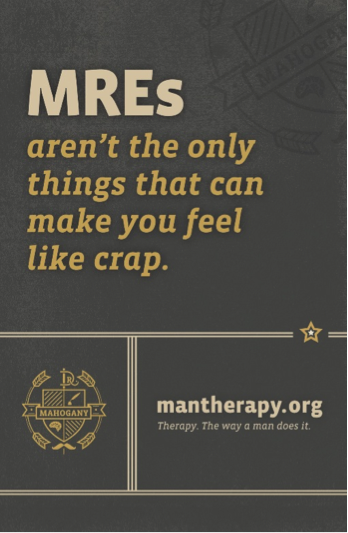The constant beat of the major media drum often paints a grim picture of veterans and suicide. Sometimes, we wonder if these messages become a self-fulfilling prophecy. Consistent headlines include data such as:
- Approximately 22 veterans die by suicide each day (about one every 65 minutes).
- In 2012, suicide deaths outpaced combat deaths, with 349 active-duty suicides; on average about one per day.
- The suicide rate among veterans (30 per 100,000) is double the civilian rate.
Listening to this regular narrative, a collective concern and urgency emerges on how best to support our veterans who are making the transition back to civilian jobs and communities. Many veterans have a number of risk factors for suicide, contributing to the dire suicide statistics, including:
- A strong identity in a fearless, stoic, risk-taking and macho culture
- Exposure to trauma and possible traumatic brain injury
- Self-medication through substance abuse
- Stigmatizing views of mental illness
- Access to and familiarity with lethal means (firearms)
Veterans show incredible resilience and resourcefulness when facing daunting challenges and learn how to cope, but employers and others who would like to support veterans are not always clear on how to be a "military-friendly community."
The Carson J Spencer Foundation and our Man Therapy partners Cactus and Colorado's Office of Suicide Prevention conducted a six-month needs and strengths assessment involving two in-person focus groups and two national focus groups with representation from Army, Air Force, Navy and Marine Corps and family perspectives.
When asked how we could best reach them, what issues they'd like to see addressed and what resources they need, here is what veterans and their advocates told us:
- "I think that when you reach out to the vets, do it with humor and compassion...Give them something to talk about in the humor; they will come back when no one is looking for the compassion." People often mentioned they preferred a straightforward approach that wasn't overly statistical, clinical or wordy.
- Make seeking help easy. A few veterans mentioned they liked an anonymous opportunity to check out their mental health from the privacy of their own home. Additionally, a concern exists among veterans, who assume some other service member would need a resource more. They hesitate to seek help, in part, because they don't want to take away a resource from "someone who may really need it." Having universal access through the Internet gets around this issue.
- "We need to honor the warrior in transition. The loss of identity is a big deal, along with camaraderie and cohesion. Who I was, who I am now, who I am going to be..." The top request for content was about how to manage the transition from military life to civilian life. The loss of identity and not knowing who "has your back" is significant. Several veterans were incredibly concerned about being judged for PTS (no “D,” for disorder - as the stress they experience is a normal response to an abnormal situation). Veterans also requested content about: post-traumatic stress and growth, traumatic brain injury, military sexual trauma and fatherhood and relationships, especially during deployment.
- The best ways to reach veterans: trusted peers, family members and leaders with "vicarious credibility."
Because of these needs and suggestions, an innovative online tool called "Man Therapy" now offers male military/veterans a new way to self-assess for mental health challenges and link to resources.
- http://mantherapy.org/
- http://mantherapy.org/#/richs_list
- Videos highlighting veterans' stories of hope and recovery:
- Tony: https://www.youtube.com/watch?v=gAYLotW27Bo
- Also see stories by Logan, Kyle, Chad and Paul here: http://mantherapy.org/#/more_videos
In addition to mental health support, many other things can be done to support veterans:
- Hire a veteran. Because they make excellent employees, and it's one of the best ways we can help support their mental health and their transition back into civilian life: https://www.hireheroesusa.org/why-hire-a-veteran/
- Conduct financial management and planning: http://www.military.com/money
- Provide service dog support: https://freedomservicedogs.org/
We owe it to our service members to provide them with resources and support and to listen carefully to the challenges and barriers that prevent them from fully thriving. Learn how you can be part of the solution instead of just focusing on the problem.







